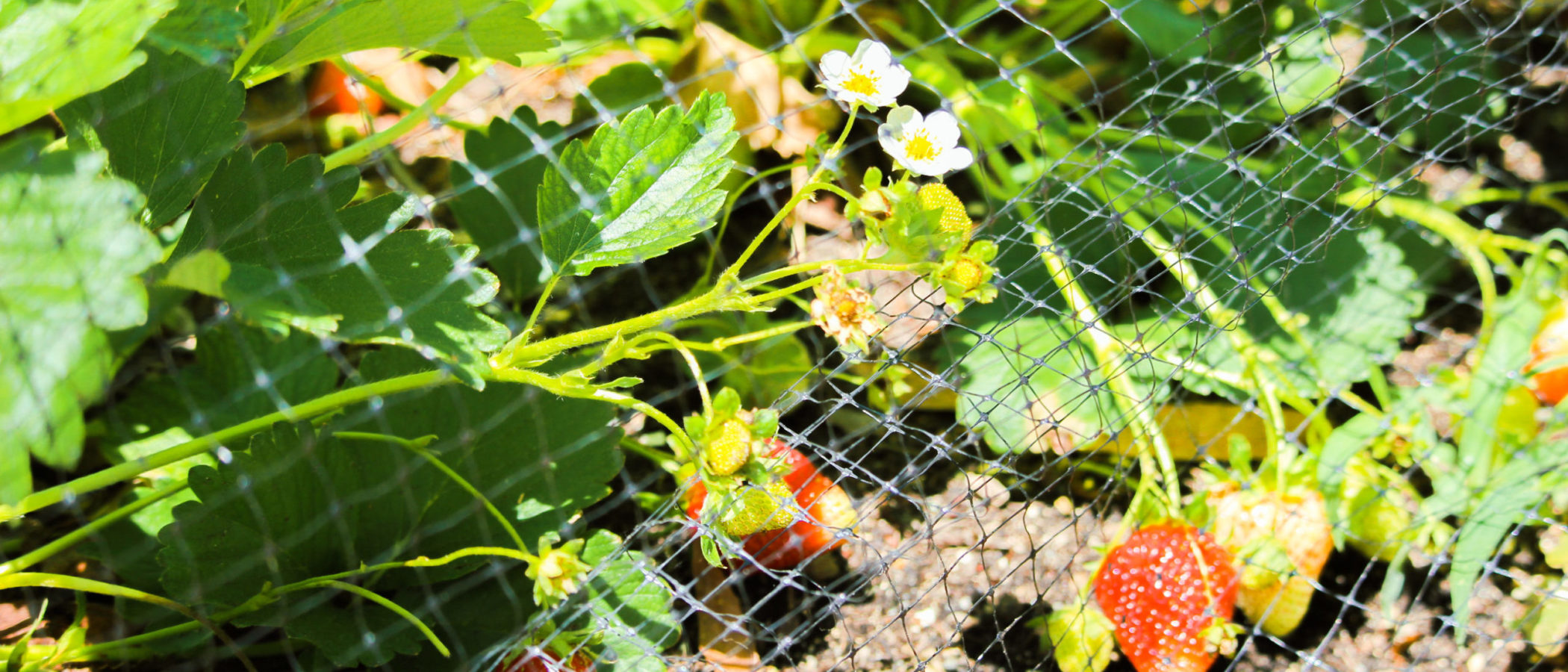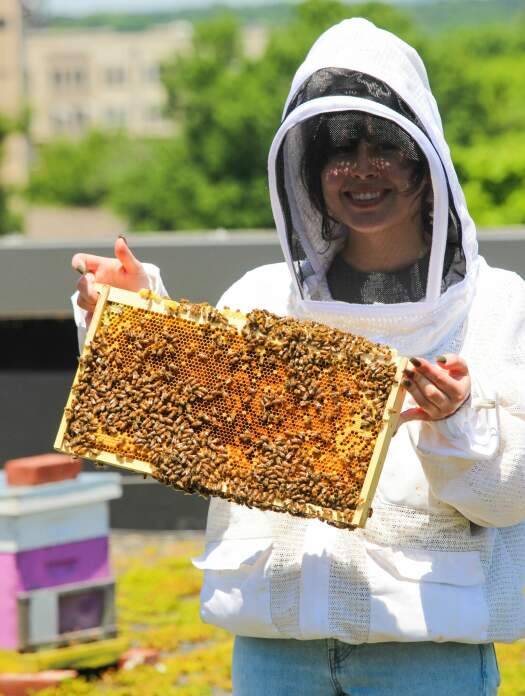
Our Sustainable Efforts
Go Green!
Sustainability is integral to Carolina Dining Services’ mission to ensure all Tar Heels are well fed, happy, and feeling at home. The goal of our program is to educate the UNC community on sustainable food systems while ensuring we are operating sustainably, offering climate-friendly menus, and diverting waste from landfills. We regularly engage in community outreach through informational tabling sessions, sustainable food samplings and pop-ups, and other events such as our award-winning Farm Stands. We also work with the Office of Sustainability and the Office of Waste Reduction and Recycling on campus to align our initiatives with the greater University goals and policies.
Our sustainability initiatives can be broken down into the following pillars: Responsible Sourcing, Waste Diversion, Education & Outreach, Food Access, and Efficient Operations. We have some of our program highlights listed below, but check out our Sustainability Report for a more comprehensive breakdown of our most recent accomplishments!

Meet the Sustainability Manager | Victoria Hill
Victoria received her B.S. from the University of South Carolina Honors College, where she studied environmental science with a focus on food sustainability. While at UofSC, she spent her time interning with the Office of Sustainability, pulling weeds in the campus permaculture garden, and serving as president of the beekeeping club.
She now works with the CDS team to educate the UNC-Chapel Hill community on our sustainable dining program while exploring opportunities for food recovery, local sourcing, waste diversion, campus food access, and more.
Program Highlights
- Award Winning Sustainability Program | In 2024, we won Silver awards in Sustainable Procurement and Waste Reduction through the National Association for College and University Food Services (NACUFS). In 2025, we won NACUFS’ Gold award for Carbon Neutrality!
- Local & Sustainable Sourcing | We prioritize purchasing locally within 250 miles of campus, with an emphasis on North Carolina farms and businesses whenever the supply chain allows. We also seek out third-party certified sustainable offerings, such as our partnership with Larry’s Coffee to offer exclusively Organic and Fair Trade coffee in the dining halls!
- Coolfood Meals | We partner with the World Resources Institute (WRI) to offer Coolfood Meals in our dining halls. Coolfood Meals have low carbon footprints while meeting rigorous nutritional standards, so you can feel confident that your meal is healthy for both you and the climate.
- Climate Friendly Eating | We offer vegan and vegetarian options at every meal period in the dining halls, with a 4-week rotating vegan menu at our Plant Forward Stations in Chase and Top of Lenoir. The menu introduces a wide variety of vegan-friendly proteins, such as seitan, tempeh, soy nuggets, polenta and legumes, and utilizes new cooking techniques to enhance overall flavor and appearance.
- Reusable To-Go Program | We offer reusable to-go containers in Chase and Top of Lenoir, and discounts for bringing reusable cups in select locations.
- Composting & Compostable Packaging | We offer front- and back-of-house composting and compostable packaging in our main dining locations, along with educational resources for guests to learn how to properly sort their waste.
- Food Recovery | We donate 300+ pounds of surplus food on a weekly basis to local organizations like the Inter-Faith Council, Carolina Cupboard, and Jenna & Friends Animal Sanctuary to divert uneaten prepared foods and produce trim waste from the landfill.
- Food Access Initiatives | We have a number of programs in place to increase access to food on campus, including a Meal Donation Program, weekly surplus food donations, monthly Farm Stand events, and frequent produce donations to the Carolina Cupboard.
- Local Restaurant Partnerships | We partner with local restaurants to integrate a diverse range of ethnic cuisine into UNC retail operations as well as generate a sense of community by providing local businesses an opportunity to interface with students and offer food on campus.
- Monthly Farm Stands | We host four of our award-winning Farm Stands each semester in partnership with UNC student organizations and Farmer Foodshare to bring fresh, affordable local produce to campus.